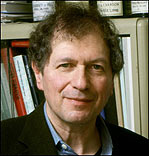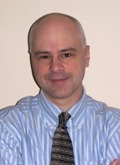Insurgent Science Series (2009)
Highlighting challenging developments in the conception of nature and science
As part of MIT's January 2009 Independent
Activities Period (IAP), the ISN sponsored two lectures in cooperation with the
MIT Experimental Study Group (ESG)
and
a number of MIT chaplaincies.
A promotional flier for the event is here (PDF).
The online text of Michael Augros's lecture is
here
(HTML),
or you can download it in
printable form (PDF). The text of Stuart Newman's lecture is
not available at present.
Friday, January 16th at 1:30-2:30pm in
68-181
 A Pattern Language for Animal Form
A Pattern Language for Animal Form
Stuart Newman
Animal body plans and organs emerged during several bursts of concentrated evolutionary change between 500 and
600 million years ago. Many of the key regulatory genes for animal development existed in single-celled ancestors,
took on new functions in the multicellular state, and remained relatively unchanged during the explosive
diversification of form. This talk will present a theory for the origination of multicellular form in which the
major driving force consists of the physical laws inherent to organisms’ mesoscopic materials rather than, as the
standard conception of biological evolution holds, genetic change driven by chance.
Dr. Newman is professor of cell biology and anatomy at New York Medical College. He specializes in cellular and
molecular mechanisms of vertebrate limb development, physical mechanisms of morphogenesis, and evolution of
developmental mechanisms.
Text not yet available.
Wednesday, January 28th at 1:30-2:30pm in
4-231

A Bigger Physics
Michael Augros
As Erwin Schrödinger wrote in 1951, “The isolated knowledge obtained by a group of specialists in a narrow field
has in itself no value whatsoever, but only in its synthesis with all the rest of knowledge.” What could it mean to
‘synthesize’ all of natural science? To what extent is such a thing possible? Why is it desirable? And whose job is
it? And how would it relate to mathematics? Come join Dr. Augros to explore the possibility of a general theory of
nature.
Dr. Augros is a philosopher of science who teaches in New York
State. He
has written on Euclid’s fifth postulate and the natural science that claims physics as a subset.
The online text of Mike Augros's lecture is
here
(HTML),
or you can download it in
printable form (PDF).
Another IAP event of interest (sponsored by ESG):
Thursday, January 29th at 2:00-3:00pm in
24-619
Obstacles to the Scientific-Technological Conquest of Nature
Svetozar Minkov
This seminar will examine philosophical questions about the relationship between humans and nature.
Before a large-scale effort to conquer nature for the good of humanity can be reasonably made, one needs
to have attempted to measure the degree of the intelligibility and beneficence of nature and human nature.
Is there a natural human good? Is it knowable? Can nature serve as either a theoretical or a practical
guide for its own 'conquest'?
Minkov is an assistant professor of philosophy at Roosevelt University in Chicago.

